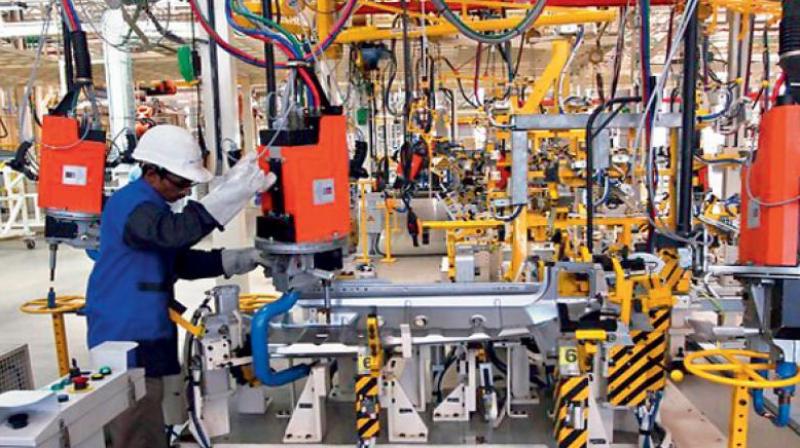Double whammy with IIP, Inflation

New Delhi: Industrial production slumped to four-month low in February and retail inflation rose to five-month high in March increasing the headache of policy makers in the country. India's industrial production (IIP) unexpectedly contracted by 1.2 per cent in February due to decline in the manufacturing sector and lower offtake of capital as well as consumer goods. At the same time retail inflation jumped to 3.81 per cent in March against 3.65 per cent in February driven by higher inflation in fuel, housing and clothing.
The decline in the industrial production in February is mainly due to 2 per cent contraction in manufacturing sector, which makes over 75 per cent of the index. The capital goods output declined by 3.4 per cent in February. Overall consumer goods production declined by 5.6 per cent during the month. The non-durable consumer goods output shrank by 8.6 per cent in the month over a contraction of 4.9 per cent year ago.
In the consumer-durable segment, the output dipped by 0.9 per cent in February against a growth of 10.4 per cent in same month last year. Overall, 15 out of 22 industry groups in the manufacturing sector have shown negative growth in February. As per inflation data, protein rich items such as milk and products and eggs were costlier during the month with inflation prints of 4.69 per cent and 3.21 per cent, respectively.
Prepared meals, snacks and sweets prices were also high as prices grew by 5.65 per cent. However, vegetables inflation contracted by 7.24 per cent in March 2017. Overall, food inflation was at 1.93 per cent as against 2.01 per cent in February. For fuel and light category, inflation rose to 5.56 per cent for the month. Meanwhile, the Reserve Bank of India will vindicated to keep its policy rate on hold last week amid concern about price pressures.
Worries about a possible spike in food prices, should India experience below-average monsoon rains this year, persuaded the RBI to keep its key lending rate on hold for a third straight meeting. But in a subtle and less expected shift to a tightening bias, the central bank raised the reverse repo rate - the return banks get on deposits at the RBI - by 25 basis points, to help mop up excess liquidity in the banking system. The monsoon season, which delivers 70 per cent of India's annual rainfall, is critical for the country's rice, cane, corn, cotton and soybean crops as nearly half of its farmland lacks irrigation.

